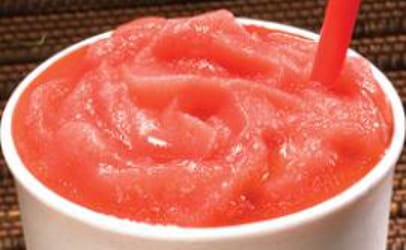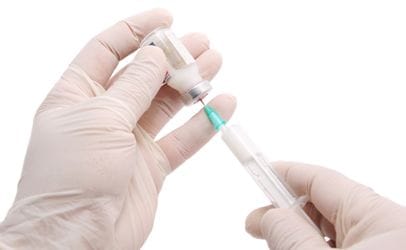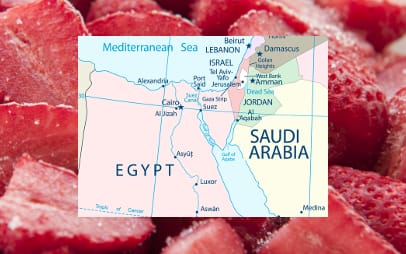More than 50 people in five states are confirmed with Hepatitis A infections in an outbreak associated with frozen strawberries from Egypt that were served at Tropical Smoothie Café locations in Virginia. The vast majority of the infected people — 44 — are Virginia residents, according to the Virginia Department of Health and the federal Centers for Disease Control and Prevention. There are also four confirmed victims in Maryland and one each in North Carolina, Oregon and Wisconsin, a CDC spokeswoman said Tuesday.

“CDC, FDA and several states are currently investigating an outbreak of foodborne Hepatitis A linked to frozen strawberries in smoothies served in restaurants,” the CDC spokeswoman said. “While Tropical Smoothie Café has removed the frozen strawberries from their restaurants and switched to another supplier, we may still see more illnesses due to the long incubation period for Hepatitis A before people start experiencing symptoms. At this time, we do not have information to suggest that there is an ongoing risk of hepatitis A virus infection at Tropical Smoothie Cafés.” That long incubation period, which ranges from 15 to 50 days, is one of the factors that make Hepatitis A outbreaks difficult to investigate, according to state and federal public health officials. Virginia health officials report illness onset dates for the current outbreak range from May through the end of August, but they were not able to connect the dots of their outbreak investigation until early August. Virginia officials notified the Tropical Smoothie Café chain at that point, but did not alert the public for another two weeks. “On Aug. 5 the Virginia Department of Health contacted us about a potential link between Hepatitis A cases and frozen strawberries from Egypt,” CEO Mike Rotondo says in a YouTube video posted Sunday by Tropical Smoothie Café. The restaurant chain immediately removed the implicated fruit from all of its locations, Rotondo says in the video. Tropical Smoothie is now sourcing strawberries from California and Mexico. Virginia delayed public alert for two weeks While pulling the implicated strawberries may have reduced the number of outbreak victims, some Tropical Smoothie customers likely could have been spared infection if Virginia officials had not waited 14 days before alerting the public. That two-week delay is key because of the narrow window of opportunity for post-exposure vaccination. The post-exposure Hepatitis A vaccine, or immune globulin (IG) injections, must be administered within 14 days of exposure or they are not effective, according to Virginia health officials and CDC. “I think it’s important for the Virginia Department of Health and Tropical Smoothie Café to say why they didn’t alert the public sooner,” said Bill Marler, a Seattle food safety attorney who is representing outbreak victims. “By not coming forward they kept people who had been exposed from having the opportunity to protect themselves and their families from Hepatitis A.” An epidemiologist with the Virginia health department said state officials waited because they wanted to gather as much information as possible “to determine with enough scientific certainty what the risk to the public was so we could understand the risk and communicate it accurately.”

“We did not know for sure where the frozen strawberries were distributed, if the risk was associated with one restaurant chain or more general to other potential sources, if it was limited to Virginia or it extended further. We wanted more information to feel confident that the source was strawberries and not other fruits, especially since smoothies contain so many ingredients,” said Diane Woolard, director of the health department’s division of surveillance and investigation. “It is important to have a high level of confidence in the message and accuracy in the assessment of risk when issuing statewide notices about a single product.” Woolard said genetic typing data was factored in and evidence continued to point to strawberries that were distributed “to one restaurant chain.” But even with confirmation from CDC on Aug. 12, Virginia officials waited another week before warning the public. The genetic typing data included in CDC’s Aug. 12 report to Virginia showed federal officials had identified a “genetically identical virus” in lab samples from multiple sick people “who reported frozen strawberry consumption from smoothies, confirming that an outbreak was occurring,” CDC spokeswoman Brittany Behm said Tuesday evening in an email. “That viral strain is in the same genotype, or family, of strains associated with berries from Egypt in outbreaks that occurred in Europe in the past. The outbreak strain in Virginia is new to our database, and we don’t have evidence that the strain matched previously tested food.” That information differs with an Aug. 26 outbreak update posted on the Virginia health department’s website. The state officials reported CDC notified them that the specific strain of Hepatitis A that infected the Virginia outbreak victims was the strain “associated with past outbreaks due to frozen strawberries from Egypt.” CDC was working with Virginia officials Tuesday evening to resolve the confusion and revise the information on the Virginia Department of Health website. Advice for the public Virginia officials continue to urge anyone who had a smoothie at any restaurant in recent weeks to monitor themselves for symptoms of Hepatitis A to help contain the outbreak. “Approximately 50 percent of the residents, for whom information is available, have been hospitalized for their illness. The 44 ill residents range in age from 15-68. Onsets of illness for the 44 cases range from early May through August,” the health department reported Tuesday. In its initial warning, the Virginia health department urged anyone who consumed a smoothie with frozen strawberries at any restaurant “within the last 50 days” to watch for symptoms of Hepatitis A. “If illness occurs, seek medical care and take steps to protect others from the infection,” the Aug. 19 public warning states.

“Other restaurants, and firms that supply restaurants, may also have received the frozen strawberries imported from Egypt. VDH continues to investigate cases and work with state and federal partners, … to identify additional locations where the product may have been distributed.” Classic symptoms of Hepatitis A include jaundice, fever, fatigue, loss of appetite, nausea, vomiting, abdominal pain, dark urine and light-colored stools. The virus can be transmitted through direct contact with another person who has Hepatitis A or by consuming food or drink that has been contaminated with the virus. Frequent hand-washing with soap and warm water after using the bathroom, changing a diaper, or before preparing food can help prevent the spread of Hepatitis A. “It is very important for people who have symptoms of Hepatitis A to stay home from work, especially if they work in food service,” according to the Virginia health department. Routine vaccination against Hepatitis A has reduced the prevalence of the disease in the past decade. Vaccination — which involves two injections given six months apart — is available to anyone, but specifically recommended for children, travelers to certain countries, and for people at high risk for infection with the virus, which includes older adults and people with suppressed immune systems. Editor’s note: Bill Marler of Marler Clark LLP in Seattle is publisher of Food Safety News. (To sign up for a free subscription to Food Safety News, click here.)








